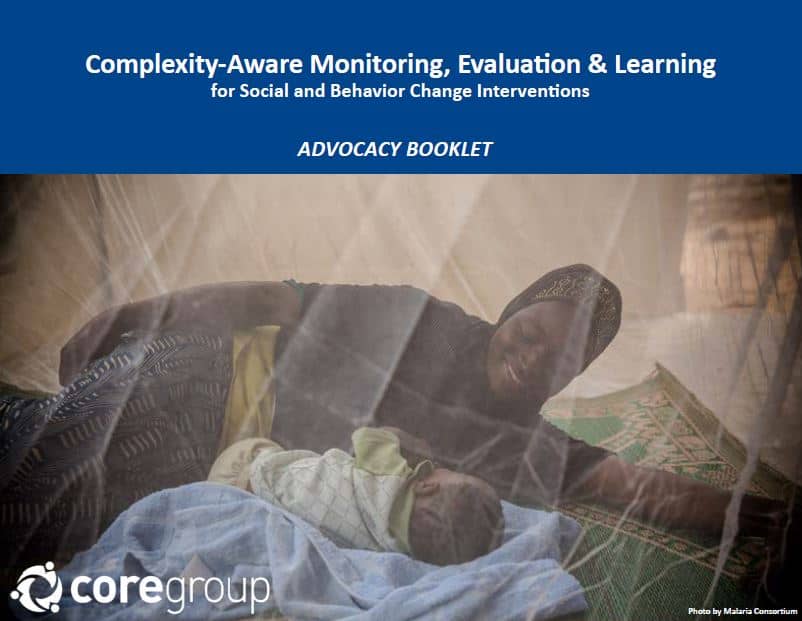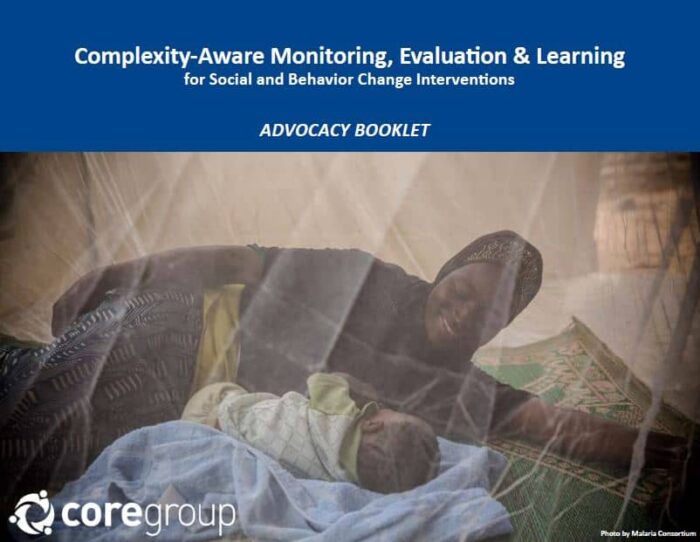
CORE Group’s Social and Behavior Change (SBC) Working Group has developed a set of complexity-aware tools are intended to help design and evaluate SBC-focused interventions. Tools in this set include:
- An advocacy brief to help guide communication with donors and to help build fluency in communicating how to monitor and evaluate SBC interventions
- A core set of indicators related to adaptation, learning, and collaboration that can be used in proposals and work plans
- A checklist intended to help in the consistency and completeness of documenting SBC interventions.
Complexity is a key factor—perhaps the key factor—in social and behavior change (SBC) programming. Complexity affects most SBC interventions through:
- Contextual complexity; the fact that the environment and implementation process itself shape outcomes of an intervention.
- Temporal complexity; interventions evolve over time as target population and implementers change behaviors, and come to new understandings, and programmatic environments shift in response to new constraints, opportunities and priorities.
- Interpretive complexity; as interventions are social activities, practitioners should acknowledge that every stakeholder understands the intervention partially and differently and has a unique perspective

